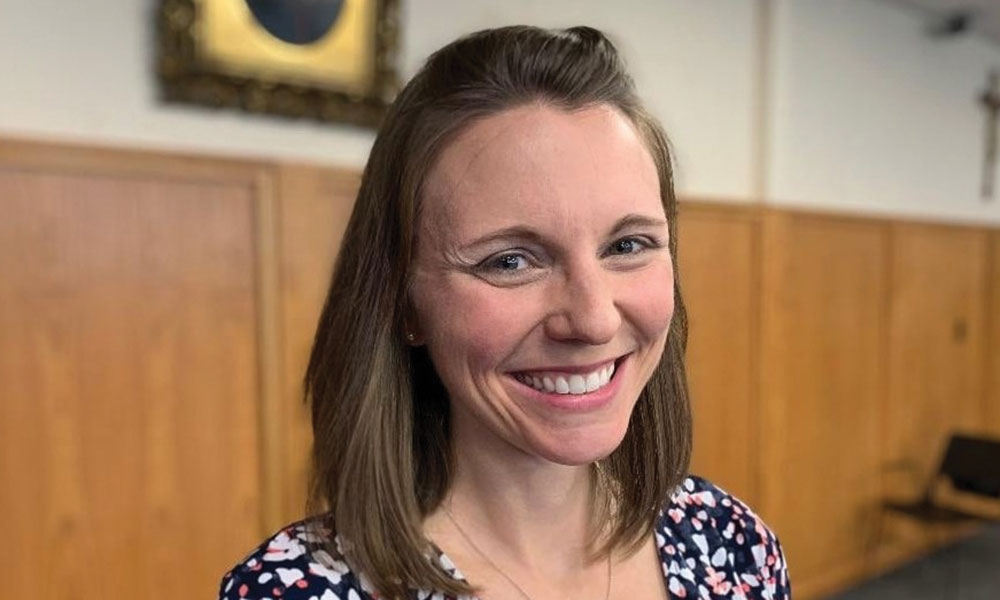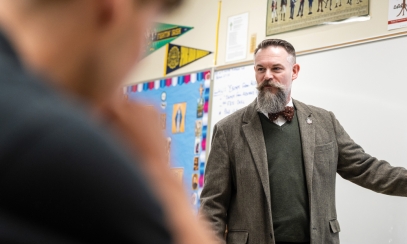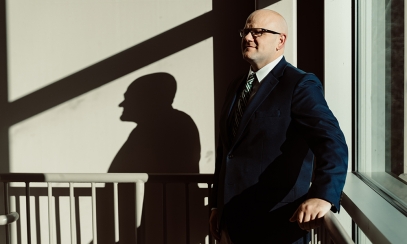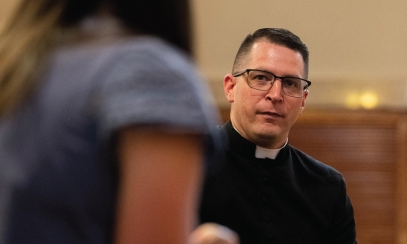
Educating for eternity
Getting your Trinity Audio player ready...Catholic schools in the Diocese of Lansing began their active renewal just three years ago, but the work of our dedicated teachers, administrators, and staff was 15 years in the making. Then Superintendent Father Steve Mattson’s 2010 report, “Maintenance to Mission: Transforming Our Catholic Schools,” revealed that, “Our schools must be Catholic to the core, which means they must focus on the truth, strive to form the whole person, seek excellence at every level, and transform minds and hearts into the image of Jesus Christ.” As an answer to the call, the 36 Diocese of Lansing schools aligned themselves with this mission and have sought to determine the most effective path by which to accomplish it.
Catholic schools in the Diocese of Lansing began their active renewal just three years ago, but the work of our dedicated teachers, administrators, and staff was 15 years in the making. Then Superintendent Father Steve Mattson’s 2010 report, “Maintenance to Mission: Transforming Our Catholic Schools,” revealed that, “Our schools must be Catholic to the core, which means they must focus on the truth, strive to form the whole person, seek excellence at every level, and transform minds and hearts into the image of Jesus Christ.” As an answer to the call, the 36 Diocese of Lansing schools aligned themselves with this mission and have sought to determine the most effective path by which to accomplish it.
Now, as teachers learned new pedagogical methods from strategic partners such as the Institute for Catholic Liberal Education beginning in the fall of 2023, pastors and principals spent time this past November reflecting on how they can “make every class Catholic” with author-educator Dr. Brett Salkeld, author of Educating for Eternity.
This goal has not always been easy, especially since, as Bishop Earl Boyea noted in his opening remarks to Father Mattson’s report, “We face a culture often hostile to the values that bring young people to happiness in this life and the next.” Therefore, the approach is evolutionary rather than revolutionary. It fully recognizes the good work already occurring in classrooms and parish communities across the Diocese of Lansing and builds upon a commitment to support and strengthen all that is presently good, true, and beautiful within our schools while still adjusting for the ever-changing tendencies of the modern, secular world.
With the renewal of the curriculum framework for preK-12 history and literature, and preK-2 literacy, slated for release in the spring of 2025, and a preK-8 religion framework released in spring of 2023, schools in the Diocese of Lansing now seek to revitalize their classroom pedagogy. It is in these classrooms where curriculum frameworks come alive as committed educators dedicate themselves to partnering with parents to help students pursue truth and grow closer to heaven. This makes it even more important that schools answer the critical question: “Is this a Catholic school according to the mind of the Church?”
This question provides the touchstone for our educators as our schools strive to become even more authentically Catholic, both in their school and family culture, and in their cultivation of renewed classrooms. To ensure their continued commitment to the mission of the Church, a renewed focus on the Catholic intellectual tradition and the pedagogy of the Catholic liberal arts is essential.
As Pope St. John Paul II emphasized in his apostolic constitution Ex Corde Ecclesiae, “Catholic schools should offer a comprehensive formation of the human person, not merely an intellectual training.” This catholic, universally comprehensive approach, as Archbishop J. Michael Miller highlights in The Holy See’s Teaching on Catholic Schools, integrates faith, reason, and the liberal arts, creating a learning environment that nurtures the whole person.
By recognizing the relationship between students’ minds, hearts, and wills, a strong foundation in faith and reason becomes the cornerstone of a Catholic school, allowing for the cultivation of deep understanding of faith and reason, and an intermingling in learning unlike traditional, generally disjointed education.
A holistic approach to Catholic education integrates the faith and reason of the Catholic intellectual tradition with the liberal arts. By honoring the Christian anthropology of every student, this method fosters a learning environment that nurtures the whole person through their intellectual, emotional, and spiritual development, rather than simply focusing on academic achievement.
Pope Francis noted in his apostolic exhortation Evangelii Gaudium that “a truly human education should include scientific and technical training, but also classical studies, philosophy and art, history and literature, and music.” Integrating Catholicity into every subject area, from mathematics to science to literature to physical education, equips students with the tools to think critically, interact honorably, and discern truth. The liberal arts, with their emphasis on reason, truth, and beauty, provide an ideal foundation for a Catholic education that cultivates the whole person, mind, body, and soul.
Archbishop J. Michael Miller emphasizes the importance of Catholic schools as communities that foster the growth of good Catholic human beings who love God and neighbor. A Catholic school should be a place where students encounter Christ and are challenged to live their faith. Therefore, the integrated curriculum must be joined with opportunities for prayer, reception of the sacraments, collaborative service of others, a supportive community, and a focus on personal discernment of God’s call in one’s life.
To implement these principles, the Office of Catholic Schools seeks to utilize curriculum renewal, teacher education, parent formation, and parish collaboration as opportunities to support schools in the renewal of each community in their individual charism. By integrating Catholic teachings into all subject areas, developing authentically Catholic and comprehensive curriculums, and utilizing complementary teaching methods, our schools will continue their work toward becoming “Catholic to the core” providing students with a transformative education that prepares them to become saints and scholars who follow God’s will for their life on earth and meet him in heaven.



